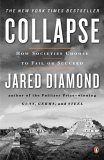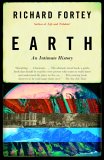Summary | Excerpt | Reading Guide | Reviews | Read-Alikes | Genres & Themes | Author Bio

Critics' Opinion:
Readers' Opinion:
First Published:
Jan 2002, 256 pages
Paperback:
Mar 2003, 256 pages
A magisterial accomplishment: both a moving description of our biosphere and a guidebook for the protection of all its species, including humankind.
From one of the world’s most influential scientists (and two-time Pulitzer Prize–winning author) comes his most timely and important book yet: an impassioned call for quick and decisive action to save Earth’s biological heritage, and a plan to achieve that rescue.
Today we understand that our world is infinitely richer than was ever previously guessed. Yet it is so ravaged by human activity that half its species could be gone by the end of the present century. These two contrasting truths—unexpected magnificence and underestimated peril—have become compellingly clear during the past two decades of research on biological diversity.
In this dazzlingly intelligent and ultimately hopeful book, Wilson describes what treasures of the natural world we are about to lose forever—in many cases animals, insects, and plants we have only just discovered, and whose potential to nourish us, protect us, and cure our illnesses is immeasurable—and what we can do to save them. In the process, he explores the ethical and religious bases of the conservation movement and deflates the myth that environmental policy is antithetical to economic growth by illustrating how new methods of conservation can ensure long-term economic well-being.
The Future of Life is a magisterial accomplishment: both a moving description of our biosphere and a guidebook for the protection of all its species, including humankind.
A Letter to Thoreau
Excerpted from the Prologue
Henry!
I am at the site of your cabin on the edge of Walden Pond. I came because of your stature in literature and the conservation movement. I came because of all your contemporaries, you are the one I most need to understand. As a biologist with a modern scientific library, I know more than Darwin knew. I can imagine the measured responses of that country gentleman to a voice a century and a half beyond his own. It is not a satisfying fantasy: the Victorians have for the most part settled into a comfortable corner of our remembrance. But I cannot imagine your responses, at least not all of them. You left too soon, and your restless spirit haunts us still.
I am here for a purpose: to become more Thoreauvian, and with that perspective better to explain to you, and in reality to others and not least to myself, what has happened to the world we both have loved. . .
The natural world in the year 2001 is everywhere disappearing ...
 Kathryn S. Fuller, President, World Wildlife Fund
E.O. Wilson delivers an impassioned plea for a new human ethic based on a wiser, more careful stewardship of our vanishing natural world. Wilson invites us to share his optimism that we still have an opportunity to save the living things and wild places that sustain us and give us hope.
Kathryn S. Fuller, President, World Wildlife Fund
E.O. Wilson delivers an impassioned plea for a new human ethic based on a wiser, more careful stewardship of our vanishing natural world. Wilson invites us to share his optimism that we still have an opportunity to save the living things and wild places that sustain us and give us hope.
If you liked The Future of Life, try these:

by Jared Diamond
Published 2006
Brilliant, illuminating, and immensely absorbing, Collapse is destined to take its place as one of the essential books of our time, raising the urgent question: How can our world best avoid committing ecological suicide?

by Richard Fortey
Published 2005
A fascinating geological exploration of the earth's distant history as revealed by its natural wonders.





The House on Biscayne Bay
by Chanel Cleeton
As death stalks a gothic mansion in Miami, the lives of two women intertwine as the past and present collide.

The Flower Sisters
by Michelle Collins Anderson
From the new Fannie Flagg of the Ozarks, a richly-woven story of family, forgiveness, and reinvention.

The Funeral Cryer by Wenyan Lu
Debut novelist Wenyan Lu brings us this witty yet profound story about one woman's midlife reawakening in contemporary rural China.
Your guide toexceptional books
BookBrowse seeks out and recommends the best in contemporary fiction and nonfiction—books that not only engage and entertain but also deepen our understanding of ourselves and the world around us.